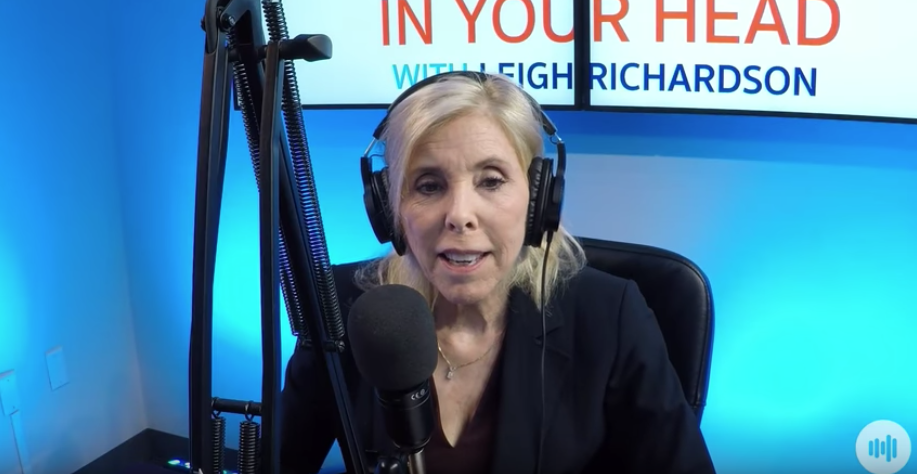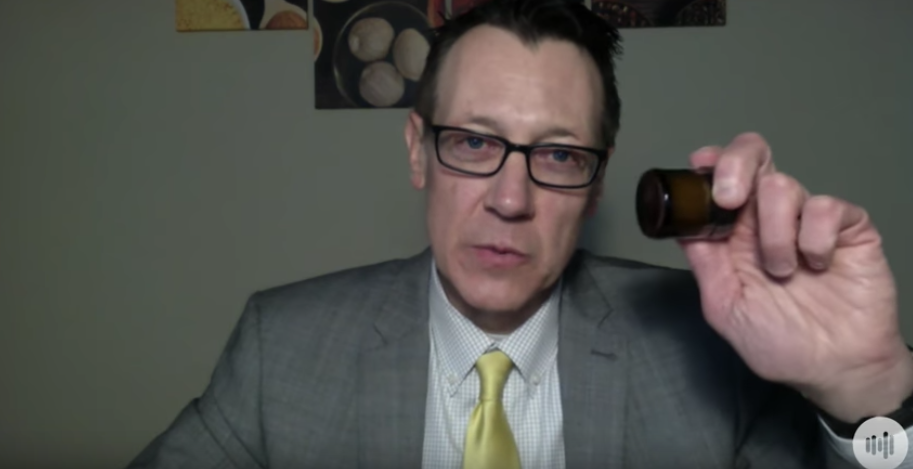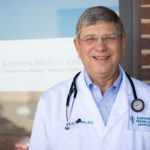In Your Head
Leigh Richardson from the Brain Performance Center discusses the benefits of neurofeedback and biofeedback with industry specialists. On each episode discover how these can positively impact your brain health and improve your life!
Episode 11: CBD Oil and Effects on the Brain
Leigh Richardson discusses one of the growing topics in health right now – CBD oil. The recent farm bill put CBD oil in the spotlight, but there are still a ton of questions about its effect, legality, and how it impacts the brain.
Dr. Russell J. Zwanka, who conducts food market research at Siena College, talks about where to get it, the differences from marijuana, and what it can actually do for you.
"Are you telling me this is an organic way to heal your body?"
Episode Spotlight
Richarson brought Zwanka into the studio to clarify some of the mystique around CBD oil.
Q: What is CBD oil? Is it hemp? Is it marijuana? What is it?
A: “If you break it down, inside the cannabis plant, you have over a hundred cannabinoids. cannabidiol, which is CBD, is technically a substance, one of the cannabinoids inside the plant, that has less than 0.3 percent THC.
When you are looking at the confusion factor going on right now, part of the issue is you have all these streams coming down. You have this medical marijuana discussion going on in multiple states. You have the recreational marijuana going on in multiple states. Then you have cannabidiol that came in from left field and became confused with all the rest.
Cannabinoids are receptors that your body does produce inside your endocannabinoid system, your ECS system, which is your the system that essentially regulates your body. It regulates the normalcy of your body, to fight back to homeostasis. What has been found is if you take CBD in its many forms, it tends to restore the cannabinoids or at least help them. Normalcy is normally disrupted by inflammation, by anxiety, by depression, by epilepsy.”
"The FDA actually own the rights to CBD. They have a drug that came out last year for epilepsy [and] it's derived from CBD. In essence, it's in their best interest to move this along, so they can at least continue to collect taxes."


Q: Are you telling me this is an organic way to heal your body?
A: Yes, and that is that is part of the frustration is that when you can prescribe opioids to a fourteen-year-old and it’s perfectly fine, but you can take something that’s extracted from hemp, and you have all these confusion factors of ‘we don’t know if the FDA wants you to take it’ [or] ‘we don’t know if the DEA is going to enforce something.'”
Q: I see emails that CBD is a miracle pain treatment, that it will cure your blood, that it will fix your blood sugar, that it will help you sleep better. Is all of that true?
A: “It does show an impact on things like insomnia, seizures, and inflammation. Whatever works for you. If you’re trying to fight something off or trying to help something, this is a pretty natural way to go about it, and it’s worth trying.”
Q: What are the different forms that it comes in?
A: “Probably the most popular right now is the tincture. The tincture is normally taken sublingually, you let it sit there for about 30 seconds, and then you swallow it. [It] avoids the digestive system works its way straight into your bloodstream, so it’s relatively quick in its impact on your body.”
Q: What does it taste like?
A: “Most people have found that a full spectrum CBD tincture doesn’t taste very good. You can either dilute it [or] mix it in something on your own. You can buy them with flavors. You should try it the first time without it, it’s kind of like green tea without sugar.”
Q: Can I put it in my soup?
A: Heat does not impact it. The issue is going to be how long you want to wait for it to take effect. So if you add it to your soup, you’re not taking it sublingually, which means you are ingesting. Then you have to wait for it to make it through your digestive system.
Regarding topical CBD oil, Zwanka went on to explain:
“Topical [CBD oil] is going to be available over the counter, so you do not need a prescription for it. I don’t know yet where they’re going to shelve it, but it can be applied to any part of your body that has some pain and works pretty well. It also wears off quickly.
The other way is capsules. You just swallow them, and they take effect. Then the one with the most stigma would be the vape. Vaping is an almost immediate effect. It lasts a while. You can control the dosage you’re taking in, but unfortunately, there’s the counterbalance that you’re walking around with a vape pen and that tends to have a lot of stigma attached to it.”
Q: But all the forms are equally legal?
A: “No. If it is hemp derived, it is federally legal. If it comes specifically from the hemp side of the cannabis plant, it is certified to have less than 0.3 percent THC. Anything derived from the marijuana side that does have THC, or has more than 0.3 percent THC, has to follow the marijuana rules of [each] state.
Immediately after the farm bill was passed, the FDA said they were not going to allow you to sell CBD infused foods. That one has been as sporadically enforced as any of them. That’s why CVS and Walgreens have gone with the topical; the topical is not being ingested, and it seems to be allowed legally.
Tinctures seem to be pretty well protected. When you add them to gummy bears and chocolate and tea and things like that, you might be at the whim of local authorities until somebody figures it out. “
Q: When do you think somebody will figure this out?
A: “The FDA actually own the rights to CBD. They have a drug that came out last year for epilepsy [and] it’s derived from CBD. In essence, it’s in their best interest to move this along, so they can at least continue to collect taxes.
One of the hang-ups is actually interstate. If it’s grown in your state, that tends to be accepted. If it’s grown in another state and moves across state borders, then it tends to be an issue.
If you happen to be traveling through an airport, my suggestion would to be leave it at home. You’re not going to be the trendsetter who can stand there at TSA and say, ‘but this is legal. This is hemp derived and I did all my homework.'”
Q: Are there any other tips you’d like to share? Any guidelines, etc.?
A: “I’ll tell you my personal experience. You don’t know what anything is going to do to your body. When you google, ‘how do I get off antidepressants,’ and there are 30 million hits of people saying, ‘I cannot get off this thing.’ I think you have to understand what you’re trying to accomplish. If you just have a sore knee, take the tongue and see if it works there. There might be a little bit of a placebo effect. I tried it, and I liked it.
A personal testimony, I don’t think I was in REM sleep for years. Then I started taking CBD at night, and now I know I’m getting there.”
Q: A lot of my patients ask if it will help their anxiety; how would you respond to that question?
A: “I would rank anxiety right up there with the sleep and the inflammation. It has actually been proven to help your serotonin receptors, and they tend to be kind of the base of things that cause depression and anxiety. People tend to describe it as an awakening effect, that in essence, it clears away the cobwebs. It actually clarifies your mind. I would say anxiety would be one of the first things I would try it with.”
Featured Episodes

Dr. Alfred Johnson
Brain Talk

Meridan Zerner
Brain and Food Talk

Dr. Eric Krokos
VR and the Brain
Listen Now!
Find In Your Head on Spreaker, Youtube, and Facebook.

